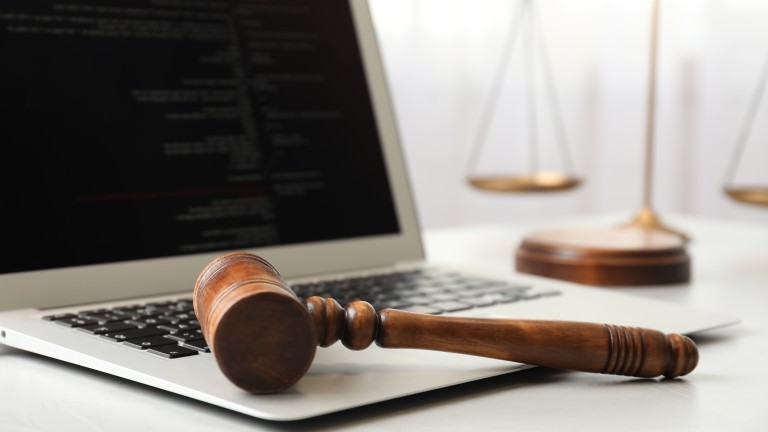By Katerina Papadea,
The reforms for the transition of justice to the digital age, with the conduct of remote trials, are some among the many challenges and surprises that the pandemic has in store. This was an essential issue, as it required a rapid adaptation of the courts and a rapid familiarization of courts officials with the new environment. Although an unprecedented situation, it did not prove ineffective, as the courts and the judiciary managed to accept the new functions of technology and fulfill their judicial obligations, without undermining the most important function of the state, which is the Administration of Justice.
More specifically, the Administration of Justice is the most critical function of a state, as the latter appears as the “final judge” in the private and public issues that arise. Precisely, because the Institute of Justice is sacred and must draw, but also inspire respect from and to the citizens, the correctness and reliability of court decisions become particularly important. Thus, it is possible and feasible to maintain the respect and trust of the citizens towards the person of justice.
For a decision to be considered credible and in order not to provoke reactions regarding the acts and decisions of the judicial bodies, the Greek Constitution provides for public hearings of the courts and the free attendance of citizens in them, except in circumstances, one could reasonably say that distance proceedings constitute a violation of the Constitution, which, however, is not the case. Given the pandemic and the restrictive measures that have been imposed worldwide, online trials can be tolerated, but this does not apply to a return to normalcy. Returning to normalcy and the need for physical presence in courtrooms would make unconstitutional and require the annulment of court decisions the continued dominance of the virtual and the audiovisual media in the courts. At that time, a simple law would not be enough to cure the lack of publicity in conducting trials, but a revision of the Constitution would be needed.

The fact that the retention of the distance trial has been supported, even after the end of the pandemic, is due to the advantages recognized by the transition to the e-court. It is considered that it is easier for everyone to schedule a hearing, avoiding the expectations and hassle that would cause a possible postponement of their own, as well as less time-consuming and costly. Precisely the fact that the litigation process had been effectively improved and its costs reduced, predicted that some practices applied during the pandemic would continue to exist in the future, after the pandemic.
Compensation for this practice has been the issue of scrutiny, as it will be more difficult for a judge to scrutinize a virtual room, as it will be unknown what is going on behind the scenes of the camera lens, and therefore make a correct and credible decision. This problem arises in view of article 177 of the Code of Criminal Procedure, according to which judged decide in their conviction, following the voice of their conscience and guided by their impartial judgment, which assesses the truth of the facts, the credibility of the witnesses and the value of the other evidence and justifies in detail the reasoning and evidence that formed it. According to this article, the following question arises: Can a complete judicial judgment be formed, under the conditions provided by an article, through a quasi-live process that moves with the help of a screen? The answer to this question is no because the continuation of this process after the end of the pandemic would lead to several wrong decisions. Additional problems would be an easier violation of personal data (psychological assessments, medical reports, other information), the inability to enforce rules, such as the presence of witnesses outside the courtroom until the moment of their testimony, and the inadequacy in its psychological interpretation of witnesses’ behavior.
It is different to see a witness in person, to be able to observe him or her and to evaluate his or her credibility, and it is different to know that there is a risk of witnesses being violated by being guided by messages, texts, or other dishonest methods. Therefore, the transition of justice to a digital age, on the one hand, would facilitate the preparation of the trial speed up its quantitive performance, on the other hand, this could easily happen at the expense of its qualitative performance.
In conclusion, it is obvious that the complete replacement of physical trials by electronic is practically impossible, but this does not mean that electronic trials will not take a place in the post-pandemic era. Virtual trials would provide advantages in the adjudication of simple cases, such as trials under the jurisdiction of a single-member misdemeanor court, as they would save time and money while ensuring the equal participation of the persons concerned. This, therefore, means that the distance trial will be demystified and acquitted and will be another stone in the judicial principle of democracy.
References
- ΟΙ ΔΙΚΕΣ ΑΠΟ ΑΠΟΣΤΑΣΗ ΔΕΝ ΕΙΝΑΙ ΕΥΚΟΛΗ ΥΠΟΘΕΣΗ, capital.gr, Available here.
- ΑDVANTAGES AND DISADVANTAGES OF VIRTUAL COURT HEARINGS, baileygreer.com, Available here.
- JUDGES DISCUSS PROS AND CONS OF VIRTUAL LITIGATION, tncourts.gov, Available here.




